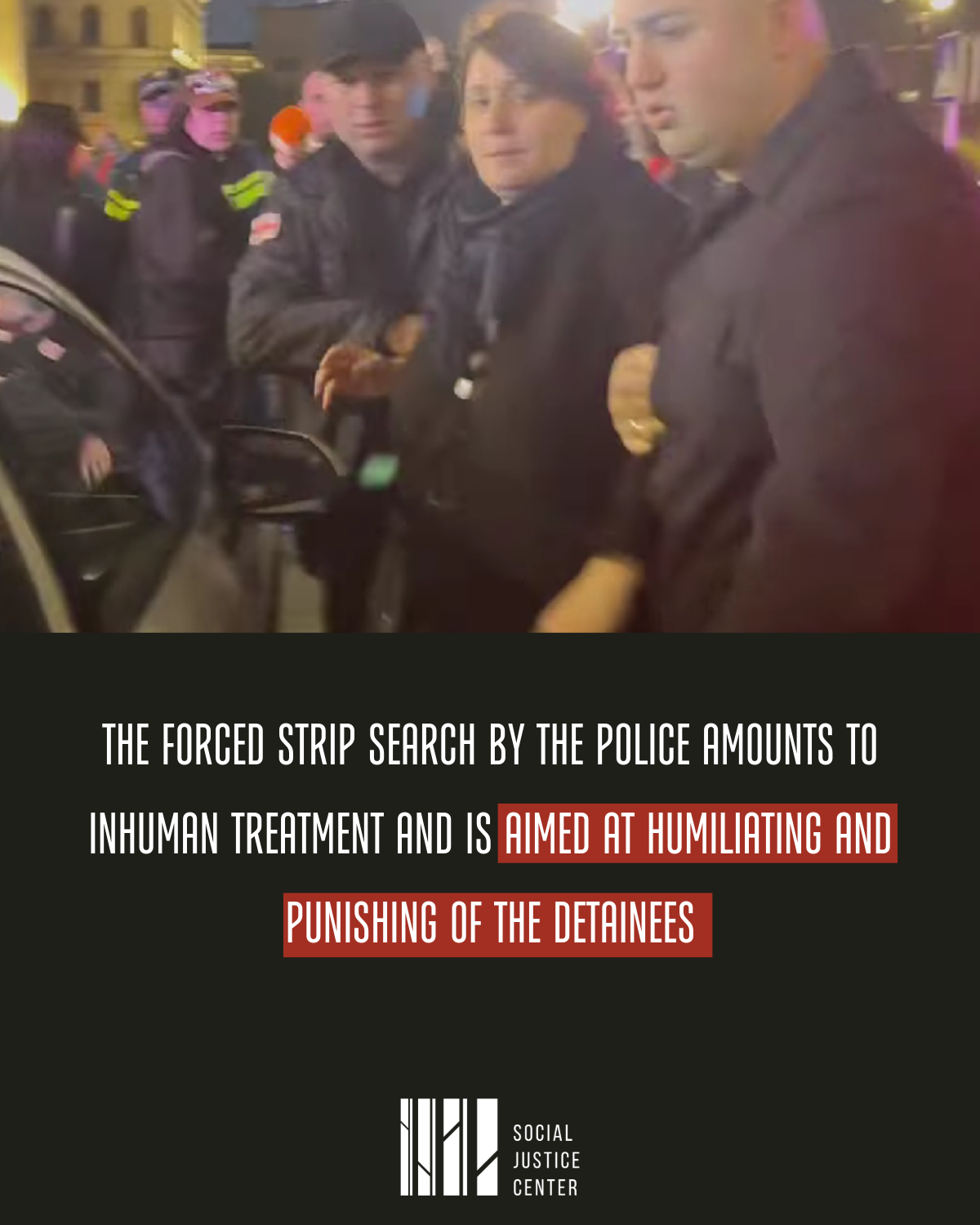საერთო ცხელი ხაზი +995 577 07 05 63


On March 29, 2025, one of the leaders of the "Coalition for Change," Elene Khoshtaria, stated that she was a victim of degrading treatment during her arrest. The politician revealed the details of her detention, mentioning that during the procedure for being placed in a temporary detention facility, specifically during the frisking/personal search, police officers forced her to undress and checked her with a metal detector. It is extremely disturbing to hear the statement from "Coalition for Change" leader Nika Gvaramia, who visited Elene Khoshtaria in the temporary detention facility. According to him, "Elene was completely undressed, her hands were tied behind her back, and they kept her on the bed for a long time while using a metal detector on her naked body. [...] When she was brought in, she had a hypertension crisis, and during this time, the vomiting reflex kicked in. They told her, ‘Not in the toilet, we’ll bring you a bag to vomit here.’ After the vomiting, as soon as it was over, they forced her to undress. Then she asked for her blood pressure medication, but they didn’t give it to her, and she still has high blood pressure." According to the media, Elene Khoshtaria was recently released.
This is not the first time that individuals detained during protest actions have been subjected to degrading treatment by the police. Since November 28, 2024, many activists have written on social media about being forced to undress during their placement in detention facilities or during personal/house searches. They were subjected to violence or had their constitutionally protected rights violated by police officers.
The practice of forced strip search by the police is aimed at intimidating, humiliating, and punishing activists. Its improper and procedurally inadequate implementation is extremely problematic and alarming. A Minister of Internal Affairs decree contradicts the complete undressing of a detainee during a personal search procedure when entering a temporary detention facility.[1] The European Committee for the Prevention of Torture (CPT) considers that personal searches are often traumatic and can turn into degrading treatment even without an intention to humiliate if they are not carried out with proper safeguards. It is essential that the treatment of individuals during searches be humane and not violate their inherent dignity. According to the European Court of Human Rights, undressing a person during a search is unacceptable without sufficient grounds for it.[2] If such actions are carried out improperly or without justification (e.g., there is no immediate threat or investigative value), they amount to improper treatment or, in some cases, torture. Moreover, undressing a person during a search is only permissible when other forms of search cannot achieve the intended goal.
The continuation of forced undressing by the police is part of the state's repressive policy against citizens detained during protests. The practice of degrading and inhuman treatment of activists is encouraged by certain institutions, including the Special Investigation Service (SIS), which has yet to investigate cases of torture and inhuman treatment by law enforcement officers against individuals detained during protests. It is especially concerning that the use of violence, sexual harassment, and degrading treatment against women, both detainees and participants in protests, has increased within law enforcement agencies. This further indicates that the police system has become completely detached from the principles of the rule of law, public order, and human rights protection, and has turned into a repressive and punitive apparatus serving the interests of the political regime.
The website accessibility instruction